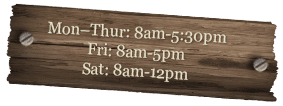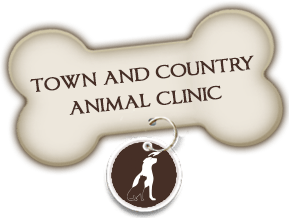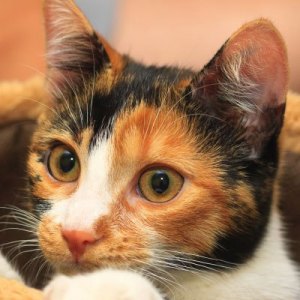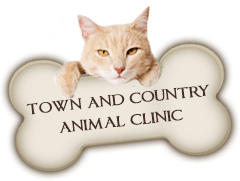Soon the holiday season will be upon us. Halloween, Thanksgiving, Christmas, Hanukkah, Kwanzaa and a variety of other holiday celebrations are just around the corner. As always, our goal is to not only have the best animal-human relationship and bond you can with your pet, but also to ensure they stay as safe as possible.

Whether you are an adult or a child, Halloween can be enjoyed by all. If you choose to dress up or enjoy the holiday by passing out treats to the ghouls and witches that arrive at your door it can be great joy and mean a lot of laughter. As with many other special occasions, this can be a great time with your pet while being mindful of the potential dangers for your furry companion.
COSTUMES: Dressing up your pet can be so much fun but not every pet will enjoy it or react the same to a new experience. Monitor your pet when they have a 

CANDY: A bag of sweets and treats may be too tempting to resist for your furry friend. Depending on the type of chocolate, even a small amount can be dangerous for your pet. Chewing gum contains Xylitol which can be very dangerous and toxic for pets. Keep these delicious treats out of reach and don’t assume that your pet will leave it alone.
FOOD:
Remember that there are certain types of foods that should be strictly avoided during the holidays; chocolates, deserts, high sugar items to name a few. Many love to enjoy a nice big turkey during the holidays, Thanksgiving being a favourite. Turkey and chicken bones can be very dangerous and should not be given to a pet and ensured that a pet does not have access to it. This could be prior to cooking, set out on the table or scraps/bones in the garbage. Bones can become lodged in various points of the digestive tract, cause abrasions or perforations and intestinal blockage.

Who doesn’t love a beautifully decorated home for the holidays? Or an eerily decorated house of horror at Halloween? And it varies for each family and person as to what and how they choose to decorate. For some it may mean Poinsettias and flowers arranged throughout the home for others it may mean garland and tinsel. It could mean spooky figures and cobwebs. While others yet may enjoy the décor of “natural” look; evergreen boughs, pine cones, apples or nuts, some may find comfort in elaborate ornaments and figurines. Whatever décor takes your fancy, for your pet it may take on a whole new meaning. Each year pets ingest parts of décor they decided were a fun toy to chew on or treat to eat. It is recommended to avoid using tinsel, especially if you have cats. Always be aware of your pets activity and what they may find attractive and keep access to a minimum, if not restricted.

The holidays for some is an extension of enjoying regular time with their friends and families, for some it means that big annual visit with their loved ones they don’t get to see often. For your pet, it could mean a little stress and anxiety over unfamiliar faces and noises. A pet that is used to a quieter, child free home may be thrown off by a loud, boisterous party with multiple young children running and laughing. This could lead to a couple difference scenarios. In one, the pet adjusts easily and enjoys the additional company. In another the pet becomes nervous and scared and hides 
For those pets with continued access to the gathering it may be irresistible for guests to not share their food with the big, sad, begging eyes staring at them. And while some pets digestive tract can handle the occasional treat or human food scrap, it may not always be the case. Diarrhea, vomiting or pancreatitis (inflammation of the pancreas occasionally as a result of high fat food/treats) could be the result of these yummy treats given to the pet. Perhaps it may be a good idea to have a small bowl of healthy pet treats that you can encourage guests to treat your pet with instead.

Alcohol can be very dangerous to pets. Typically we think that a pet would not think to indulge in the glass of wine or drink but this is not the case. Some pets will ingest anything they can get their little mouths on, including alcoholic drinks. We also need to keep in mind that pets can get alcohol poisoning from sources other than drinks. Rum-soaked fruitcake or unbaked dough containing yeast can result in alcohol poisoning and other life-threatening problems. Keep drinks and food items out of reach of pets or keep pets isolated away from where these items may be.

A present does not have to be a food source in order for a pet to want to investigate further, play with or open. It is not uncommon for a curious cat to play with the ribbon on a gift, possibly ingesting it and causing a foreign body. Or perhaps your playful dog opens the present and chews on the brand new boots bought for your loved one. To be safe, gifts should be kept out of reach of our furry friends.
FLOWERS:
Remember that certain flowers and plants are toxic to our pets. Two major types seen around the holidays being Poinsettias and Lillies. Even a small ingested amount can mean a big problem. If you have cats, it is probably best to avoid having these types of plants in your home. For more information on other types of toxic plants you can visit https://www.aspca.org/pet-care/animal-poison-control/toxic-and-non-toxic-plants

Whether you celebrate Christmas, Hanukkah, Kwanzaa, Ramadan or any other holiday celebration, there may be specific symbols used to celebrate that event. The Christmas tree or Hanukkah Menorah are two important holiday symbols, 

And as always, feel free to send us any photos of you and your pet enjoying life! We love to see them!











